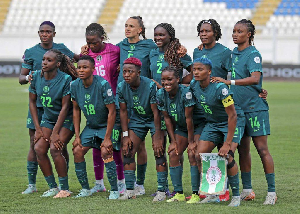The late General Sani Abacha was born on this day in 1943. A kleptocrat and one of the country's famous dictators, his place of birth was the Northern Region of Nigeria, which is now referred to as Kano State.
Abacha was fierce in leadership. He ruled a country whose economy was prosperous because of the oil boom at the time. His rule according to the reports was one of the best for the country, economically, however, the same couldn’t be said for his human rights track record.
According to a Washington Post report in 1995, "Nigerian were suffering in silence" under his rule. His administration between November 1993 and June 1998 stifled the voice of the voiceless, it clamped down on press freedom – many described it as the worst ever in upholding human rights. It was also known for its high-profile political imprisonment and assassinations.
Abacha's radical tendencies began 6 (six) years after independence. He was still a second lieutenant with the 3rd Battalion in Kaduna when he took part in the July 1966 Nigerian counter-coup from the conceptual stage.
His participation in the civil war, fighting on the side of the federal government against Biafra between 1967 and 1972 made him a promising young officer. There did he catch the eyes of his superiors.
After the civil war in 1972, he rose up the ranks from Captain to Brigadier General. His rise through the ranks was meteoric. He was feared and admired by his peers and gained respect amongst his leaders.
His tact and fearless appeal in the uniform automatically earmarked him for success in the Nigerian military.
Abacha played a prominent role in the coup of 1983 that brought current President, Muhammadu Buhari to power. Two years later, he toppled his boss in a similar fashion, dedicating himself to the service of General Ibrahim Babangida who ousted Buhari.
Babangida paid his loyalty and he was named Chief of Army Staff and later appointed Minister of Defense in 1990. Abacha was power-drunk and starved of it during the period of being the right-hand man to the head of state. Clearly, he knew it was a matter of time before he took office.
Not long after, Babangida handed over power to interim President, Ernest Shonekan and there was Abacha's opportunity to rule. He forced Shonekan to resign citing "socio-economic uncertainties under the interim National Government”.
Abacha became Nigeria's 10th head of state and his time as Head of State was bedeviled with unrest.
Organized demonstrations, pockets of violence, bombings made him paranoid till he ordered his authoritarian police to clampdown ruthlessly on criminals and dissidents.
In spite of the negative press surrounding him, his administration oversaw an increase in the country's foreign exchange reserves from $494 million in 1993 to $9.6 million by the middle of 1997.
He was also attributed to reducing the external debt of Nigeria from $36 billion in 1993 to $27 billion by 1997.
To mark the day of his birth, we take a look at 7 key reasons why Nigerians will never forget Abacha.
1. 1985 Coup in Lagos
General Abacha became a household name after his active participation in the December 31 coupled to the removal of President Shehu Shagari. He fought on the orders of General Muhammadu Buhari.
2. June 12 1993 General Election
To date, the 1993 election is regarded by many as the fairest national election in Nigeria's history. The day, however, became a talking point after General Abacha overturned the election results after it became clear businessman, M.K.O was in a winning position.
3. November 1993
President Shonekan resigns. Many believe his resignation was because of General Sani Abacha.
4. 1994 Imprisonment of Abiola
After M.K.O Abiola instigated his supporters against the military rule of General Sani Abacha, he was arrested and put behind bars.
5. November 10, 1995
General Sani Abacha executed writer and environment activist, Ken Saro-Wiwa and eight other Ogoni by hanging.
6. He released political prisoners
President Olusegun Obasanjo, Former National Security Adviser, Sambo Dasuki, M.K.O Abiola, and Professor Wole Soyinka were released from prison following their arrest.
7. He is accused of looting the country’s wealth
General Sani Abacha is reported to have stolen close to $5 billion.
General News of Sunday, 20 September 2020
Source: www.mynigeria.com













